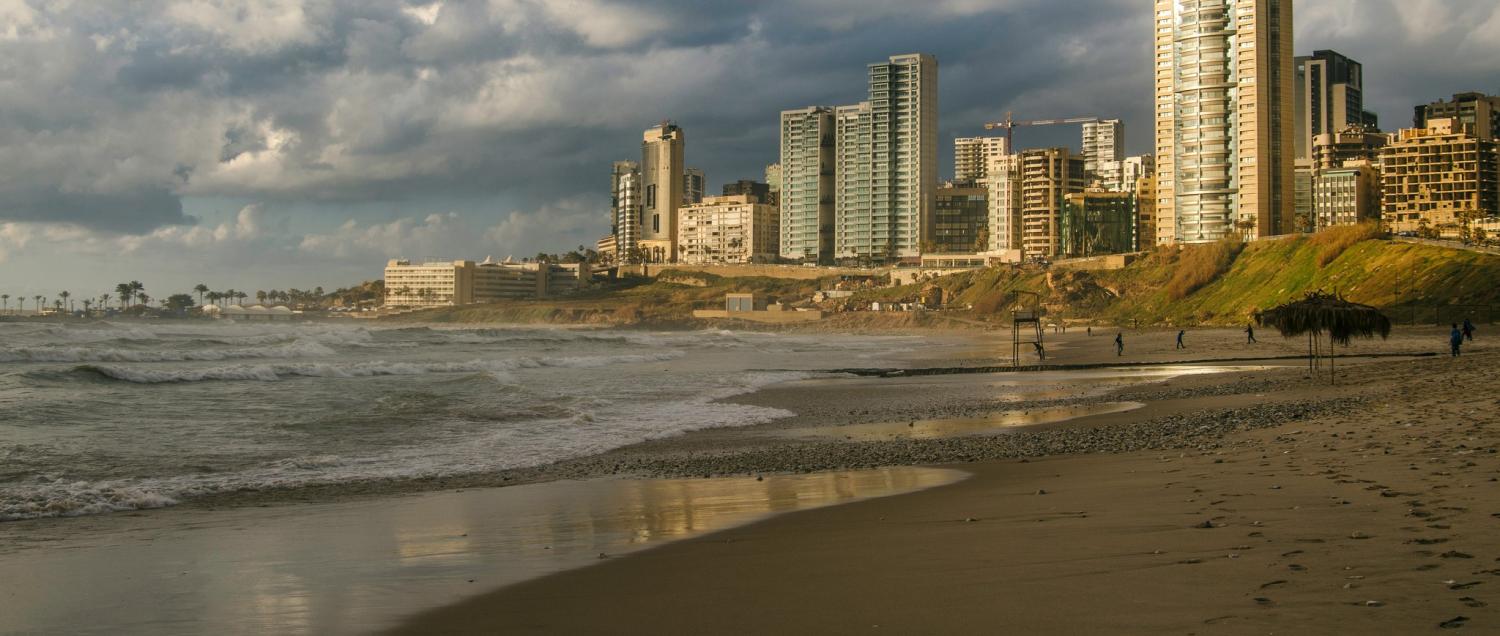Last month a suicide bomber was stopped in his tracks in a cafe in the heart of West Beirut in a scene worthy of a Hollywood action thriller. The man from the city of Sidon in South Lebanon was thrown to the ground in the busy Costa Coffee café in Hamra by the Lebanese Armed Forces, who then prevented him from detonating eight kilograms of shrapnel-laden explosives. He's believed to have been acting on an Islamic State request for increased terror attacks on civilians in Lebanon to help spread confusion and distrust between the religious sects and increase Lebanon’s overall vulnerability to religious extremism.
Thus far Lebanon has managed to remain a relative sanctuary of calm in an increasingly unstable region due to a combination of four important factors: unusual levels of intelligence cooperation between US and European states with Lebanese security agencies; a shared Sunni and Shia fear of Islamic extremism; compromise and power sharing by some local political actors; and finally a regional desire to keep Lebanon calm.
The ultimate solution to help Lebanon remain stable partially lies in successful security sector reform and the creation of strong state institutions. What we see currently in Lebanon is a mix of formal and informal, domestic and international measures to stave off the worst of the violent jihadism that is afflicting the Middle East today. Indeed, the thwarting of the attacking in Hamra was a direct result of unprecedented cooperation between two Lebanese security agencies: the Internal Security Service (ISF) and the Lebanese Armed Forces (LAF) intelligence branch.
The major US concern regarding Lebanon since 2014 has been to prevent Islamic State from expanding there via Syria. The main US contribution to Lebanon during the Obama administration has been assisting the Lebanese Armed Forces maintain stability across the country. The Lebanese Armed Forces is the only national institution that is genuinely regarded as non-sectarian and has an approval rating of over 75% amongst the Lebanese population; a survey of civilians in the south of Lebanon found that 91.5% of civilians stated that they thought that LAF should be responsible for national security.
In January last year the head of the US Central Command, General Lloyd Austin visited Lebanon and pledged support for the LAF. The US has invested considerable amounts of money in the LAF for some time (up to $1 billion since 2006) but much more is needed to update weaponry and equipment. As I have noted elsewhere, the LAF are engaged in a successful capacity-building project with the United Nations Interim Force in Lebanon (UNIFIL) in the south of the country. The continued success of this project relies on continued contributions from the Trump administration.
As noted by Rodger Shanahan, Russian and Iranian investment in Syria leaves little space for the US. As such, Lebanon should remain key to US foreign relations in the Middle East in that its ongoing stability would help prevent further spread of the violence that has consumed vast parts of the region. It is not enough for the new administration to cosy up to the Gulf States and ignore the needs of frontline states such as Jordan and Lebanon, for whom the threat of Islamic extremism remains highly pertinent. The new list of Muslim-majority states that are persona non-grata in the US does not include either country, leaving the possibility of continued strong relationships on the table.
But despite the calm, there are actors within Lebanon who remain committed to destabilising the state. Perceptions of Hizbullah’s power and its benefits remain mixed in Lebanon; on a recent trip in Lebanon, I was bluntly informed by a Lebanese civilian: 'It is over. Hizbullah has won. There is nothing left to fight for any more'. On the one hand, in those desperate days in 2014 when an Islamic State invasion seemed a realistic fear, there were some thankful private mutterings about the deterrent effect of 'the Party' across all the sects. But Lebanese politics has always been a delicate balance that requires all the major religions to feel fully represented. With President Donald Trump now in the White House, new attempts to create more chaos in the Middle East might be well-timed.

